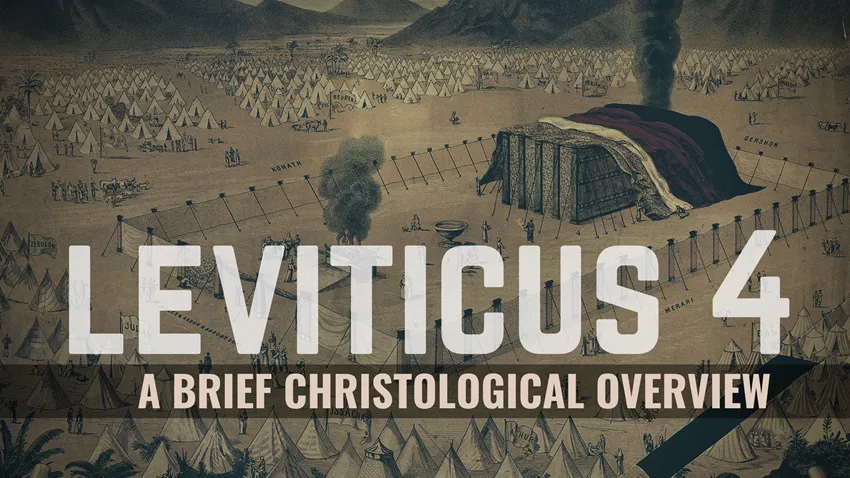Leviticus Chapter 4 Summary
Leviticus Chapter 4 outlines the procedures for sin offerings, which were made to atone for unintentional sins committed by individuals, leaders, or the community. The chapter specifies different offerings based on the sinner’s status: a young bull for the high priest or the congregation, a male goat for a leader, and a female goat or lamb for an individual. The sinner was to lay hands on the animal’s head, symbolizing the transfer of sin. The animal would be slaughtered, and its blood sprinkled before the altar. The fat and certain organs were burned as a pleasing aroma to God. This chapter highlights the seriousness of sin and the need for atonement, emphasizing God’s provision for forgiveness through sacrificial offerings.
Bible Leviticus Chapter 4
Welcome to read Leviticus Chapter 4. Here is the list of Exodus Chapter 4:
What Does Leviticus Chapter 4 Teach Us?
Leviticus Chapter 4 outlines the laws regarding the sin offering, a critical aspect of the sacrificial system in the Old Testament. The sin offering was made to atone for unintentional sins and to restore the worshiper’s relationship with God. This chapter provides profound insights into the nature of sin, the need for atonement, and God’s grace. Although these laws were specific to Israel’s covenant, they carry significant lessons for Christians today. Below are the key teachings from Leviticus 4:
1. The Seriousness of Sin
Leviticus 4 underscores the seriousness of sin and its impact on the community. The chapter addresses various categories of individuals: the high priest (v.3), the congregation (v.13), a leader (v.22), and an individual (v.27). Whether the sin is committed by a spiritual leader, a group, or an individual, sin affects everyone and requires atonement. This highlights the truth that sin separates us from God and affects the entire community, not just the individual (Romans 3:23).
2. Unintentional Sin and Accountability
One of the key aspects of the sin offering is that it was for unintentional sins (Leviticus 4:2, 4:13, 4:22, 4:27). This teaches that even sins committed unknowingly or unintentionally require atonement. For Christians, this is a reminder that even small or hidden sins can create a barrier between us and God. It calls believers to be attentive to their lives, to confess sins regularly, and to seek God’s forgiveness for even those things we may not be aware of (1 John 1:9).
3. The Need for Atonement
The sin offering demonstrates the necessity of atonement for sin. The blood of the sacrificial animal was to be applied to the altar, signifying that life must be given to deal with sin. This points to the ultimate atonement provided through the blood of Jesus Christ. In the New Testament, Christ is the fulfillment of these offerings, as His sacrifice on the cross provides forgiveness and reconciliation with God (Hebrews 9:12).
4. God’s Grace in Providing a Way of Atonement
Even though the people of Israel were required to offer sacrifices, God’s grace is evident in providing a means of restoration. Through the sin offering, God allowed the people to maintain fellowship with Him, despite their failures. This act of mercy reflects God’s desire to restore and maintain a relationship with His people. Christians today can find hope in knowing that, even though we fall short, God offers forgiveness through Jesus Christ (Ephesians 1:7).
5. The Role of the Priest in Mediating Atonement
In Leviticus 4:16-18, the priest plays a central role in offering the sin sacrifice on behalf of the people. The priest was the mediator between God and the people, offering the blood on the altar to make atonement for the sin. This foreshadows the role of Jesus as the Great High Priest, who mediates between God and humanity through His sacrificial death (Hebrews 4:14-16). Christians recognize that Jesus’ sacrifice has removed the need for animal sacrifices, as He was the perfect mediator.
6. The Holiness of God’s Presence
The chapter emphasizes that sin cannot be in the presence of a holy God. The act of atoning for sin with a sacrifice underscores God’s holiness and the need for purity to approach Him. Sin defiles, and without atonement, one cannot stand before a holy God. For Christians, this highlights the holiness of God and the importance of repentance and confession in restoring our fellowship with Him (1 Peter 1:16).
Related topics:


